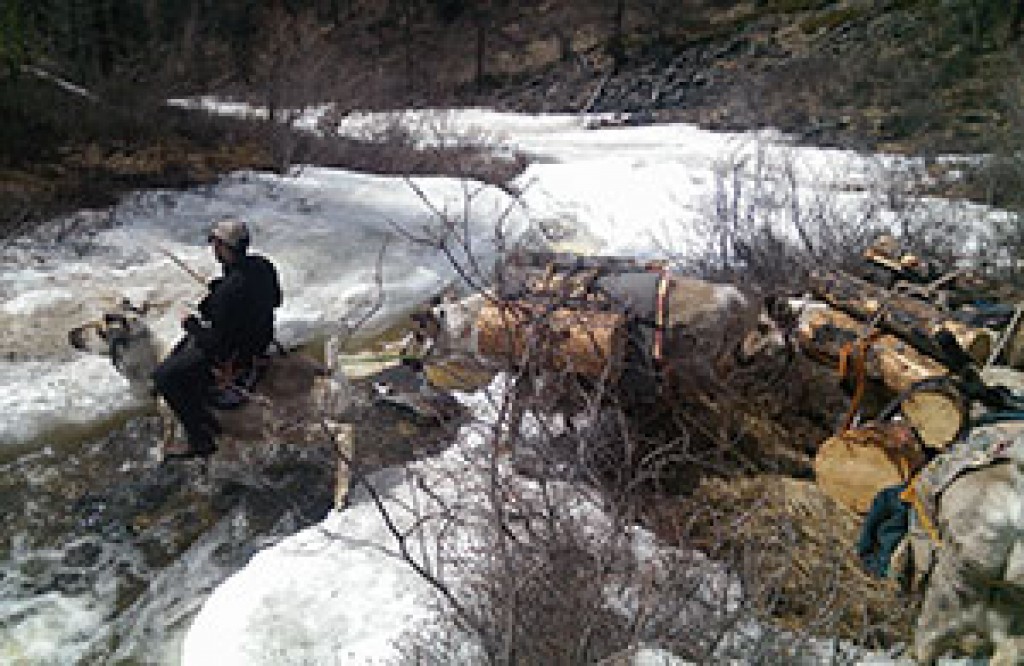UW Scientist Explores Archaeological Record by Studying Mongolian Reindeer Herder Camps

University of Wyoming Department of Anthropology Professor Todd Surovell rides a reindeer and uses the animal to carry firewood during his time in the western Khovsgol Province of Mongolia.
University of Wyoming Department of Anthropology Professor Todd Surovell rides a reindeer and uses the animal to carry firewood during his time in the western Khovsgol Province of Mongolia to study the Dukha which means nomadic reindeer herders. Surovell has traveled to the Khovsgol Province of Mongolia at least five times to study the nomadic reindeer herders of Tuvan descent. The research is part of the Dukha Ethnoarchaeological Project, which began in 2012. Ethnoarchaeology is the study of living peoples for the purpose of developing tools for improving interpretation of the archaeological record. This project differs from traditional spatial ethnoarchaeology, in that Surovell shifted the focus from the mapping of material remains to the direct mapping of human behavior. To do so, he has used a combination of observational mapping and time-lapse photography coupled with photogrammetry, or mapping from photographic imagery. Professor Todd Surovell will discuss his research of nomadic reindeer herders in Mongolia during a special lecture on the March 19th in University of Wyoming's welcoming center, Wyoming, USA. Originally from across the border in what is now the Tuva Republic of Russia, the Dukha are one of the last groups of nomadic reindeer herders in the world. The reindeer and the Tsaatan people are dependent on one another. Reindeers provide them with milk, cheese, meat, and transportation. They also sew their clothes with reindeer hair, reindeer dung fuels their stoves and antlers are used to make tools. As the reindeer populations shrink, only about 40 families continue the tradition today. Their existence is threatened by the dwindling number of their domesticated reindeers.
Source: www.uwyo.edu; www.boredpanda.com
